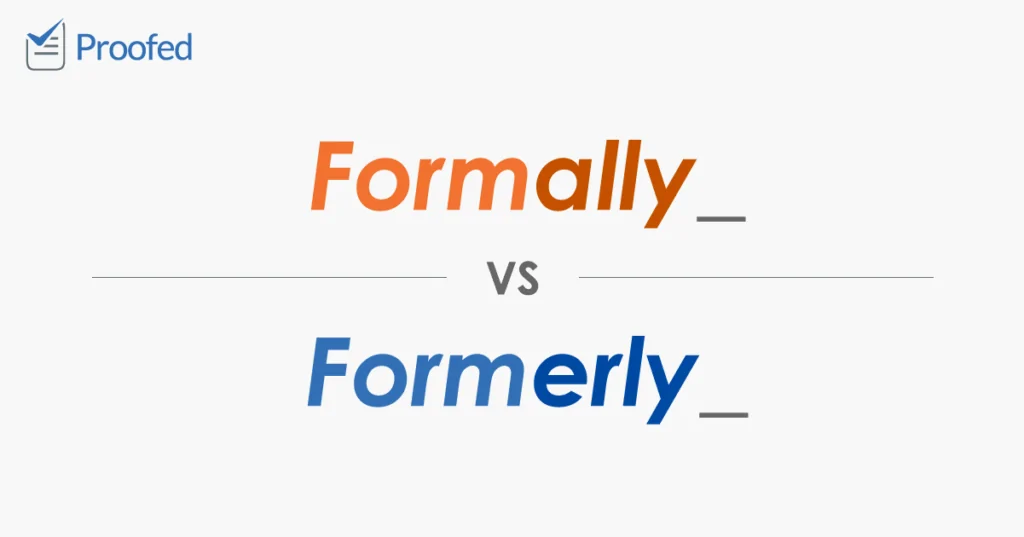A lot of adverbs end with the letters “-ly.” And some unrelated words thus sound similar, such as “formally” and “formerly.” So to make sure you can use these terms correctly, check out our guide to what they mean.
Formally (In a Formal Manner)
“Formally” is the adverbial form of the adjective “formal.” And since “formal” means “official” or “in accordance with convention,” we use “formally” when something is done in a formal manner. To dress “formally,” for example, usually means dressing smartly for a special occasion:
We dressed formally for the wedding.
Alternatively, we could make a “formal” announcement. This would be a statement that makes something official (even if people already knew about it through hearsay):
He formally announced his resignation on Tuesday.
The opposite of “formally” is “informally.” This implies doing something in a way that ignores official rules or conventions. The adjectival form is this word, meanwhile, is “informal.”
Find this useful?
Subscribe to our newsletter and get writing tips from our editors straight to your inbox.
Formerly (Previously)
The word “formerly” means “in the past” or “previously.” For example:
The Google search engine was formerly called “Backrub.”
Here, we’re saying that Google was called “Backrub” before it was Google (which is true, weirdly). The adjectival form of this word is “former,” which means “from a past time.”

Formally or Formerly?
Although these words sound similar, they don’t mean the same thing. As such, you should be careful not to mix them up in your writing. Remember:
- Formally comes from “formal” and means “officially” or “in a formal way.”
- Formerly comes from “former” and means “previously” or “in the past.”
Since the words “formal” and “former” sound more distinct, moreover, you can use them to remind you what their adverbial forms mean. And if you want to be sure that your word choice is always correct in your writing, a little bit of proofreading can be a big help!



